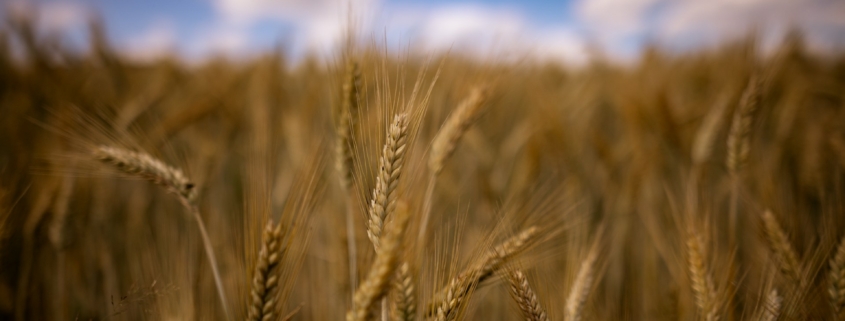Genetics plays a huge part in farming, especially when it comes to growing wheat. By understanding the genetic makeup of wheat, farmers can boost their yields, leading to more successful harvests. This isn’t just about producing more wheat but about creating stronger, healthier plants that can withstand various challenges. By embracing advancements in genetics, the agricultural industry can meet the rising demand for wheat with greater efficiency and sustainability.
Recent developments in genetic research have opened up new possibilities for wheat production. Through selective breeding and modern genetic techniques, researchers can enhance specific traits in wheat that contribute to higher yields. These advancements help in developing varieties that are resistant to diseases, adapt better to different climates, and require less water and nutrients. As these genetic breakthroughs continue to evolve, they promise a future where high-yielding wheat varieties become the norm, supporting both farmers and the broader food supply chain.
Understanding Wheat Genetics
Wheat genetics might sound complicated, but it simply refers to the study of the plant’s DNA and how it can be improved. At its core, it looks at the different traits that affect the growth and productivity of wheat. These traits include things like disease resistance, drought tolerance, and the ability to produce more grain.
Key traits in wheat genetics that influence yield include:
1. Disease Resistance: Developing wheat varieties that can fight off common diseases.
2. Drought Tolerance: Creating plants that need less water.
3. Stronger Roots: Enabling the plant to absorb more nutrients from the soil.
By focusing on these traits, farmers can choose seeds that are best suited to their specific conditions and needs. For instance, a farmer dealing with frequent dry spells might opt for drought-tolerant varieties to ensure the crops survive during tough times.
Genetic research in wheat isn’t just limited to traditional breeding anymore. Modern techniques, like gene editing, allow researchers to work precisely, targeting specific genes to enhance desired traits. This means changes can be made faster, reducing the time it takes to develop high-performing wheat varieties. As these methods advance, they pave the way for more resilient crops that can meet the world’s growing food demands.
Genetic Advancements in Wheat Breeding
Modern breeding techniques in wheat are changing how farmers approach crop production. These methods focus on making precise genetic improvements, allowing for the cultivation of wheat varieties that perform better in various conditions. Techniques like CRISPR and other gene-editing tools enable scientists to target specific aspects of the wheat plant, enhancing characteristics such as drought tolerance and disease resistance.
Recent genetic advancements pave the way for:
1. Improved Yield Stability: Breeding programmes focus on ensuring that wheat can handle fluctuating conditions without compromising yield.
2. Insect and Pest Resistance: By tweaking natural plant defences, these new varieties are better equipped to fend off common pests.
3. Adaptive Growth: Some genetically adapted wheats can quickly adjust to unpredictable weather patterns, taking some of the guesswork out of farming.
One example of this is the development of wheat which thrives in both surprisingly hot and dry seasons. By making these genetic adjustments, farmers can enjoy greater peace of mind, knowing their crops have a fighting chance against nature’s surprises.
Benefits of High-Yield Wheat Varieties
Growing high-yield wheat varieties offers multiple benefits for farmers and the agricultural industry alike. These crops promise an increased output, which subsequently boosts farm profitability and supports food security. By investing in such advanced varieties, farmers can expect:
1. Higher Productivity: With more robust plants, fields can produce more grain per hectare.
2. Resource Efficiency: Plants that require less water or nutrients cut down on input costs.
3. Environmental Sustainability: Resilient wheat varieties help lessen the environmental footprint by needing fewer chemical inputs.
Additionally, farmers who choose high-yield seeds often see a marked improvement in the efficiency of their operations. Less time and fewer resources are needed to maintain these crops, allowing farmers to focus on other aspects of their businesses.
Selecting the Right Wheat Seed for Sale
Choosing the best wheat seed involves considering various genetic qualities that align with specific farming needs. Farmers should look for seeds that offer strong germination rates and show promise in desired traits like disease resistance. Here are some tips to help in the decision-making process:
1. Identify Local Challenges: Understand what specific issues your region faces, like pests or water scarcity, and select seeds that cater to those needs.
2. Prioritise Desired Traits: Whether it’s drought tolerance or higher yields, knowing what your priorities are can guide your choice.
3. Consult Experts: Leveraging the knowledge of seed experts can provide valuable insights into picking ideal varieties.
This selective approach reassures farmers that they are investing in seeds that will thrive under their unique conditions, guaranteeing a productive farming season.
The Road Ahead: Future Genetic Innovations
Genetic research in wheat is continuously evolving, holding exciting potential for future innovations. By delving deeper into plant DNA, scientists aim to unlock the next wave of improvements. Expect to see more varieties with reduced input needs and heightened nutritional profiles. Ongoing research may also introduce wheat that flourishes in extreme climates, broadening the areas where farming is feasible.
The future promises not only better strains of wheat but an ongoing transformation in how we perceive agricultural development. As these innovations make their way to fields, they will foster more resilient, productive, and sustainable farming systems, ensuring a stable food future for everyone.
Exploring new developments in wheat genetics can be the key to securing bountiful harvests and sustaining agricultural growth. If you’re ready to take advantage of these advancements, consider sourcing high-quality wheat seed for sale to boost your farm’s productivity. To discover more about these options, connect with Shepherd Grain and see how our decades of experience and advanced seed solutions can support your success.




